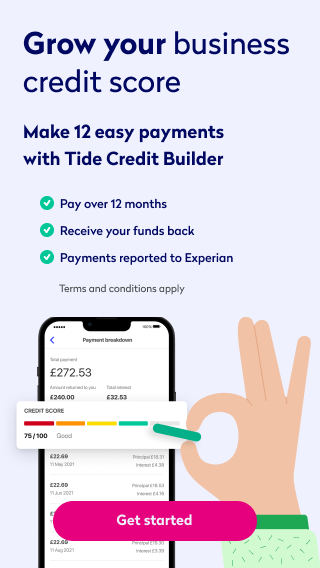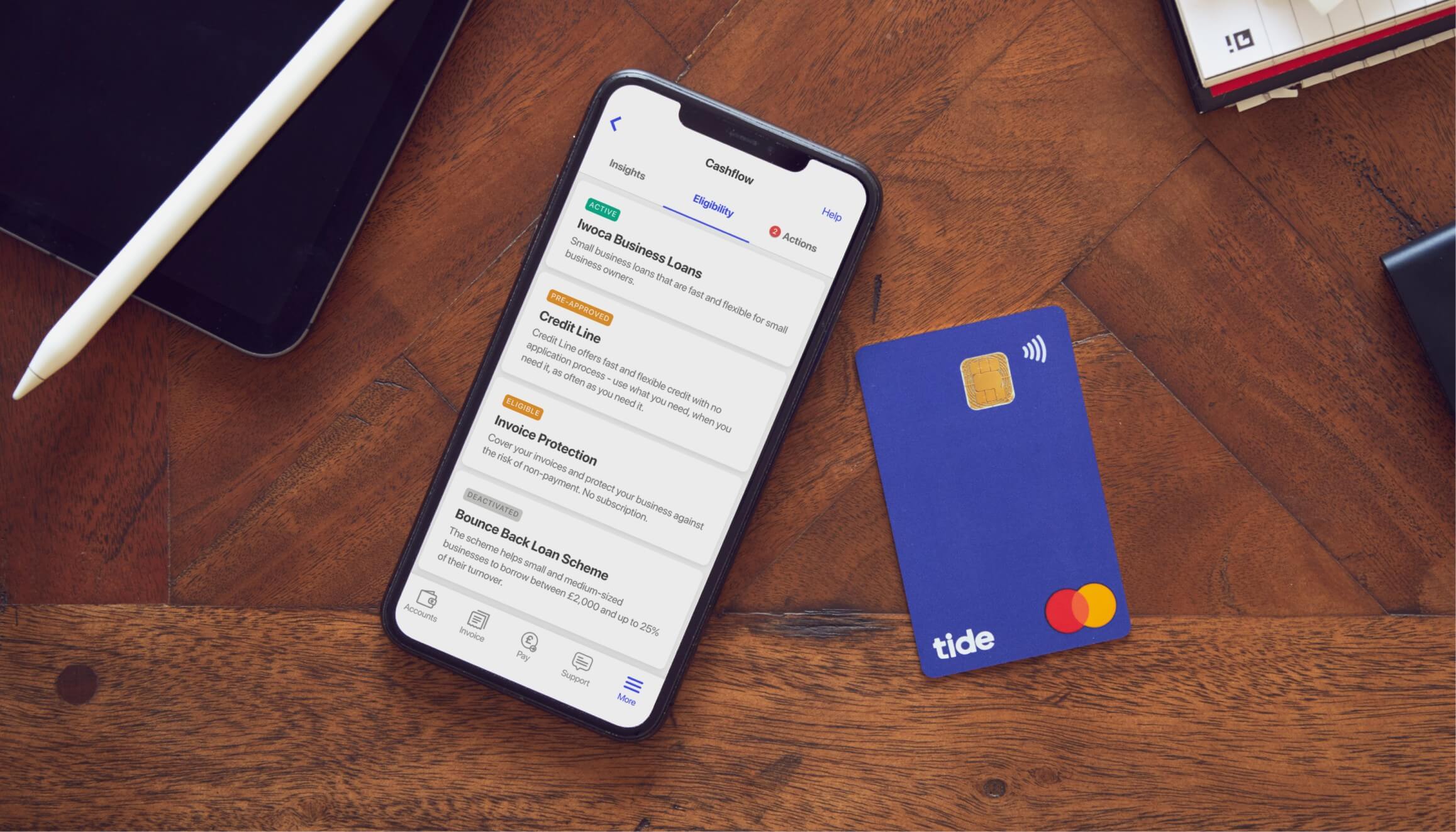
How (and why) to run a credit check on another business

Most small business owners understand the importance of checking their own business credit scores. But did you know your customers’, suppliers’ and business partners’ credit histories also impact your score?
Maintaining good business credit doesn’t stop with paying your bills and debts on time. To protect your company’s financial health, you need to know how to run a credit check on a business other than your own.
In this article, we’ll cover the how and why of checking another company’s business credit score. We’ll also go over what to do when a customer or supplier has less-than-ideal credit. And finally, we’ll discuss alternative options for when a formal business credit check isn’t an option.
Top Tip: Good credit helps grow your small business, but financing can be a burden if you don’t know how and when to use it. Learn everything you need to know about using financing responsibly in our guide on how to get and use business credit ✅
Table of contents
- Why you should know how to check a company’s business credit score
- How to run a credit check on a business
- What to do when a company has a bad credit report
- What if I can’t get a credit report on a company?
- Wrapping up
Why you should know how to check a company’s business credit score
Buying from or doing business with companies whose finances are in bad standing can negatively impact your own business and reflect in your credit score.
Your business credit score is crucial to securing good financing options for growing your business. Yes, you can build strong credit and show that you’re a low-risk borrower by keeping current on all your payments, following accounting best practices and using your business credit card responsibly.
But your score isn’t completely in your control. Here are three reasons you should check up on the credit scores of your suppliers, partners and customers:
- To protect your own cash flow. If a customer falls behind on payments to you, your cash flow suffers. This, in turn, can affect your ability to repay suppliers or lenders, negatively impacting your own credit score.
- To avoid fraud and complications. A company’s business credit reports can alert you to a history of shady practices or failure to pay debts.
- To make sound decisions about your business’s future. If a partner or supplier is facing financial distress or bankruptcy, you might rethink how (and if) you want to work with them. For instance, you might decide to offer higher interest rates and shorter repayment timeframes to add an incentive for timely payment. Or you might start looking for new partnerships or alternate vendors altogether.
Top Tip: Dealing with customers who don’t pay on time can be stressful and leave you scrambling to pay your own debts. Learn how to manage overdue invoices and get paid without hurting client relationships in our guide on how to chase an overdue invoice (the right way) 💯
What determines a business credit score?
Credit scores are a good way to objectively research another company. That’s because while each credit bureau, or credit reporting agency (CRA), calculates scores a little differently, they all base their results on similar information.
Here are a few factors CRAs look at to determine a company’s score:
- Age and size of the company. A company that’s been around for a while likely has more financial and payment records, making it easier to determine a score. The size, in terms of revenue, also helps determine helpful metrics like debt to income ratios.
- Industry. Some industries are riskier than others. Media and oil, for instance, might be affected more by legislation changes than other incentives. As a result, financial health can be volatile for companies operating in these industries.
- Length of credit history. The longer a company has had stable credit and positive repayment history, the less risk it poses.
- Credit utilisation. The percentage of available credit a company uses regularly reflects how able they are to meet its day-to-day expenses.
Top Tip: Business credit scores offer a thorough snapshot of a company’s financial wellbeing. Learn what information goes into a credit report and what it means in our guide on everything you need to know about your business credit score 💰
How to run a credit check on a business
Checking a business credit score is a matter of knowing where to look and how to interpret the credit information you find. So, how do you go about getting credit history on another company?
The easiest and most effective way of checking up on a business is to access a formal business credit report.
As mentioned, business credit scores are calculated by designated CRAs. Every agency has its own criteria for determining scores, but each looks at common factors to determine a company’s creditworthiness.
Top Tip: Knowing your own business credit score is the first step to building strong credit and securing business financing. Learn everything you need to know about credit monitoring by reading our guide on how to check your business credit score 🌟
Top business credit reporting agencies in the UK
In the UK, there are three main CRAs businesses look to for credit risk information. All three offer unique reports with slightly different focuses. Here’s a brief overview of each.
- Dun & Bradstreet PAYDEX. D&B uses a business credit rating scale of 1 to 100, with a score of 80 and above indicating a healthy credit score. Their report looks closely at a company’s payment history as reported by its vendors and suppliers.
This score is often a standard business loan providers, suppliers and vendors look at to determine credit terms for a customer or borrower.
- Experian. Experian rates business credit scores on a scale of 0 to 100, with 80 and up indicating a low credit risk. Experian looks at repayment history and public records to determine credit risk. Its report is typically used by banks and lenders to decide the creditworthiness of companies looking for loans.
- Equifax. Equifax offers a range of scores, including a standard business credit score ranging from 0 to 100. This agency also offers additional reports for more insights into a company’s finances.
For instance, their Business Failure score analyses the probability that a business will cease operations in the next 12 months. Similarly, their Business Credit risk score indicates the likelihood of a company being delinquent on payments in the future.
The Equifax business credit score can help determine creditworthiness. The additional reports are also a good option when you’re looking for more specific information.
What’s inside a business credit report, and what it means
A business credit score is only part of the equation you need to understand a company’s financial standing. The reports CRAs generate also contain vital business information.
Aside from a company’s credit score, some of the factors you’ll see in a typical report include:
- The full company name
- Background information on the business
- Company financial information
- A summary of banking, repayment and collection history
- Notice of any liens, county court judgements or bankruptcies against the company
This information can be invaluable as you weigh your decision to work with a company or vendor.
Top Tip: Understanding the factors that affect business credit scores can help you improve your own. Learn in-depth tips to qualify for better financing options in our guide on how to increase your business credit score 📈
It’s important to read over the information to pick up on any red flags that might affect your business relationship. Potential red flags include:
- Decreasing profitability. If a company is becoming less profitable year over year, it might indicate problems with its solvency and stability. If the company is a vendor, falling profits may indicate an increased risk of supply disruption. With a client, it may be a sign they’ll struggle to repay their debts to you.
- Inability to cover short-term debts. If a company doesn’t have a good track record of taking on and resolving short-term loans, it can show problems with cash flow. That will directly impact your own cash flow should the company default or be delinquent on payments to you.
- A high ratio of debt to income. A higher proportion of money owed to money coming in than average can be a sign of financial struggles or poor planning. Again, these issues could indicate how a company will do business with you, and their poor planning could leave you scrambling to meet your own financial obligations.
Note that averages and good baselines vary from industry to industry. Do your research to determine what this calculation means for the specific company you’re looking at.
Do I need permission to check a business’s credit score?
Unlike personal credit, a company’s credit report is public information. You don’t need permission to access a report. You just need to request and purchase it from a reporting agency.
What to do when a company has a bad credit report
If you find red flags in a credit report, you may start to rethink extending credit to a customer or working with a business partner or vendor. Now what?
You have two options for how to respond when you’re unhappy with a credit report. You can decline the relationship or credit request, or you can choose to take on the risk anyway. Here are some tips and examples for how to proceed in either case.
Declining a customer
If you decide not to pursue a partnership or to refuse credit to a customer or supplier, communicate your decision clearly and sensitively.
For example, decline credit with a tactfully worded letter or email like the following:
“Thank you for your inquiry. Unfortunately, because of the current economic situation and the inherent uncertainty of our business, we cannot grant your credit request. We’re happy to keep you on as a cash customer or to offer to hold the items for you for one month with a 50% deposit up front. We value our business relationship and look forward to helping you with any needs in the future.”
Be sure to thank the customer and assure them that you want to continue the business relationship. Offer alternatives to credit (like cash payments or the layaway plan mentioned above).
Choosing to take the risk
You may have reasons for choosing to take on a customer or work with a supplier even if their report looks risky. Perhaps their market is poised to do well this year, or their recent poor profitability is due to funds diverted to a recent expansion.
If you do decide to move forward with a business relationship, take steps to protect your company. You can establish a good credit relationship by taking a proforma approach to invoicing.
A proforma invoice is a preliminary bill you issue in advance of providing goods and services. Asking for payment in advance has several advantages.
If you move forward with a proforma approach for the first few payments or a set time frame, you ensure timely payment. You also minimise the risk of building up a lot of unpaid invoices. Finally, this approach helps you create a relationship of trust with the customer or vendor. It builds evidence that they’re likely to be stable with credit in the future.
Top Tip: Proforma invoicing is a way of establishing a “good faith” agreement. It helps you and your buyers get on the same page about costs up front. Learn everything you need to know about using this tool in our guide on what a proforma invoice is (and how to use one) ⚡️
What if I can’t get a credit report on a company?
Sometimes getting a formal credit report isn’t an option, often due to cost or limited time. In those instances, there are ways to do effective research yourself.
- Ask for a bank reference. Ask your potential partner or customer for a reference from their bank. The bank’s assessment of how risky a prospect is can be a good start to assessing overall risk.
- Ask for supplier references. You can get a sense of what it’s like to work with a potential customer by hearing it directly from those who already do business with them. Ask for several references from current suppliers to understand how consistent a potential customer is at paying bills and debts on time.
- Look at published accounts. Look up a company’s financial accounts if they’ve published them. You can access accounts free online through sites like Companies House and Creditsafe. Apply basic accounting formulas to the reports to determine the likelihood of repayment. Your accountant should be able to help you with the formulas.
- Use a Proforma invoice approach. As mentioned earlier, presenting costs and asking for immediate payment can protect your company and build proof of good credit repayment.
Wrapping up
Knowing who you’re doing business with and what they bring to the table will help you make safe business decisions.
Make credit checks a regular part of your financial management as you build connections with customers, partners and vendors. Your efforts will help you maintain good working relationships and keep your own credit strong as you continue to grow your business.
Photo by Buro Millennial, published on Pexels








